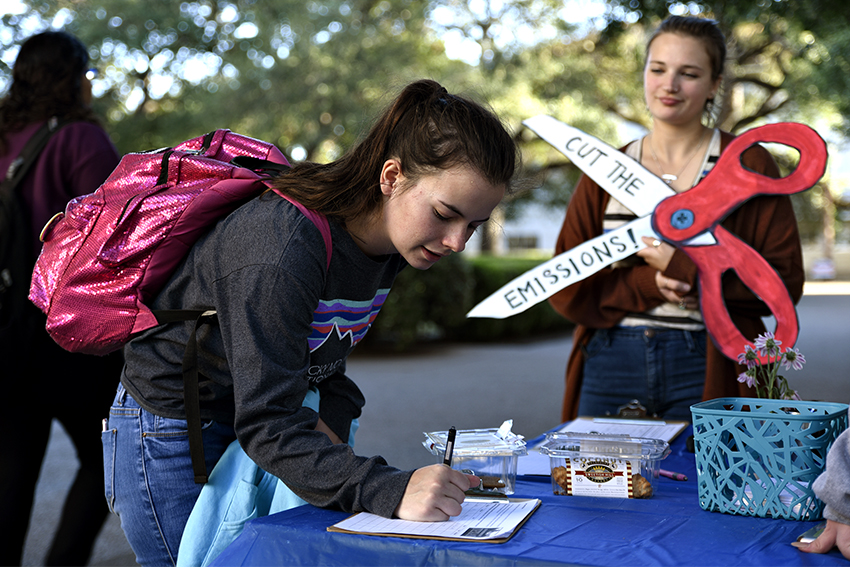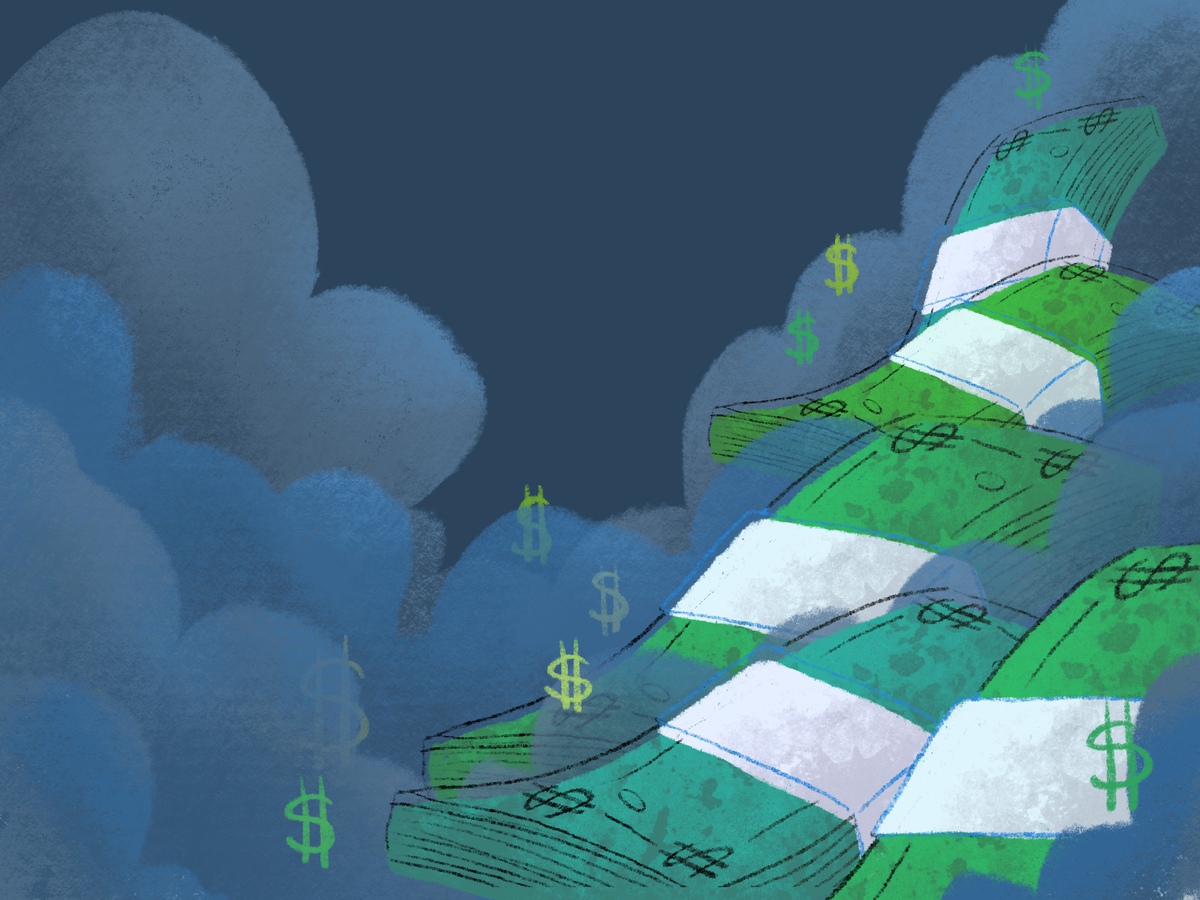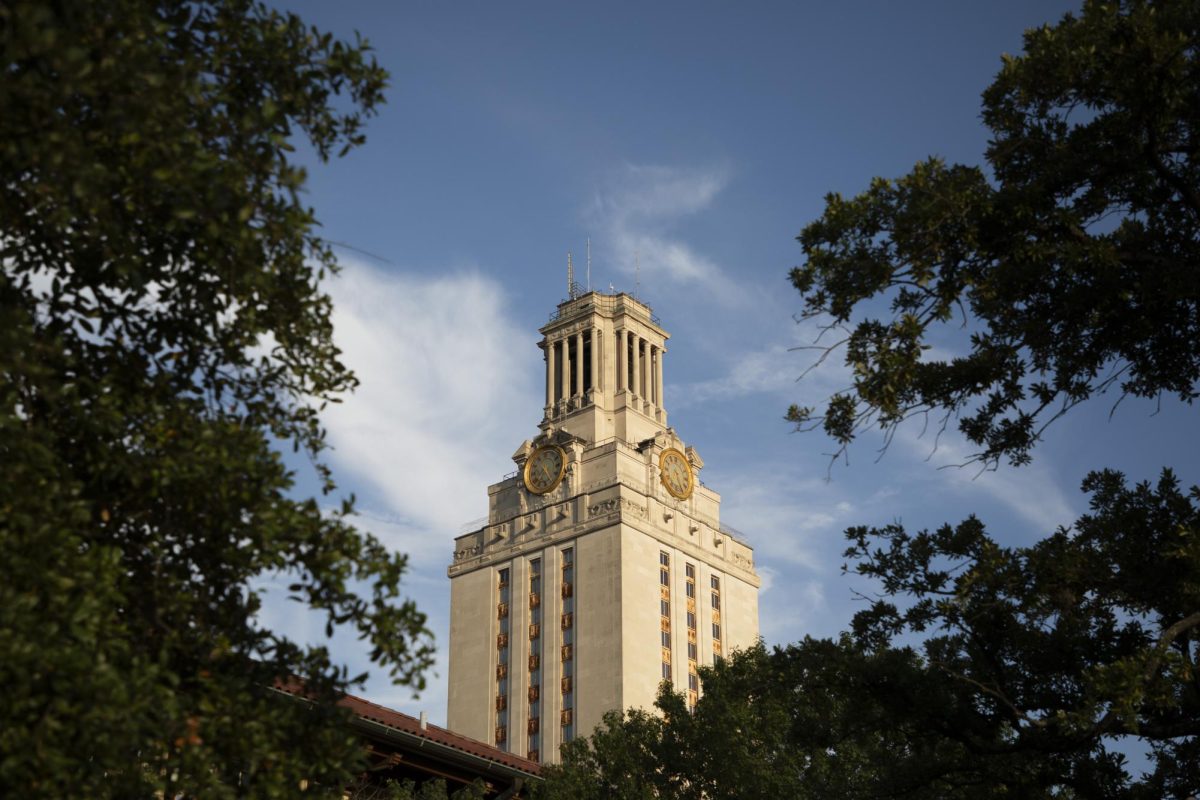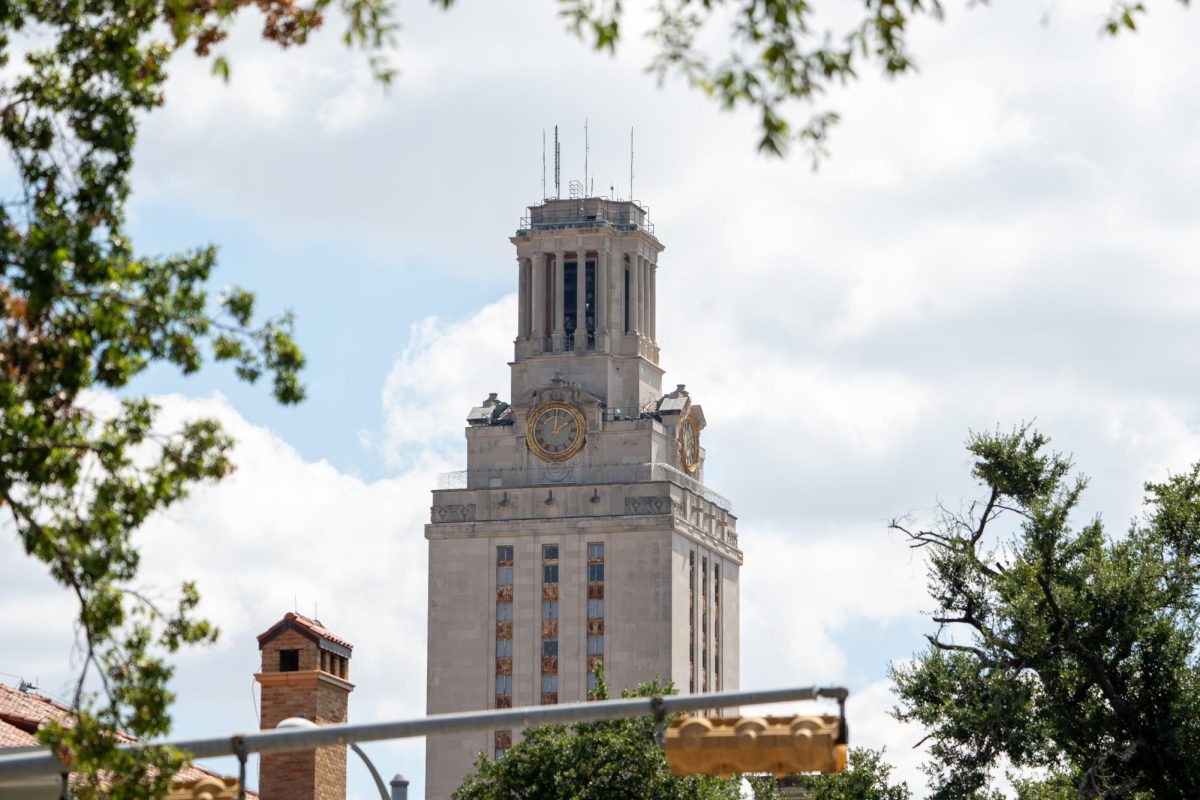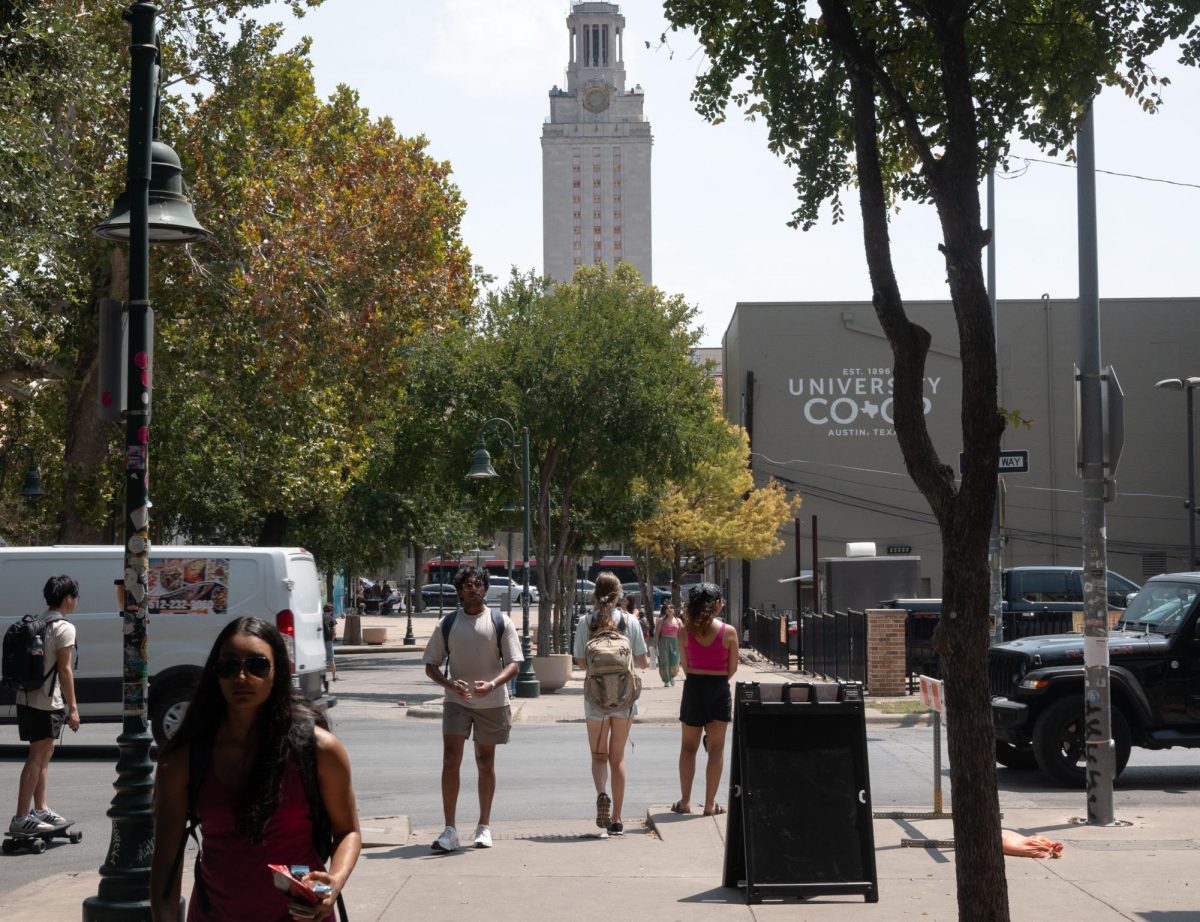Tabling on the West Mall on Tuesday, UT students and advocacy group Environment Texas reignited a campaign to reduce methane emissions from hydraulic fracturing, or fracking, on UT System-controlled land.
The new push for petition signatures comes almost a year after Environment Texas sent a letter to UT System Chancellor William McRaven raising concerns about emissions. McRaven and University Lands, the entity managing the UT System’s 2.1 million acres, have been slow to implement change since then, said Kari Ross, Environment Texas campaign coordinator.
“(Chancellor McRaven) has been very vocal about environmental problems in the past,” Ross said. “We think he’s environmentally minded, and he’s with us on this issue — it’s just a very political issue, especially because of the funding the UT System gets from fracking.”
University Lands leases land to oil and natural gas companies, generating revenue for Texas’ Permanent University Fund, which provides income for UT and Texas A&M system universities. Oil and natural gas production normally releases the greenhouse gas methane, but Environment Texas worries University Lands is not regulating oil and natural gas companies enough to reduce methane leaks on its land.
Ultimately, Environment Texas would like University Lands to cut methane emissions in half over the next five years through methane leak detection and repair technology.
“From the research that we did, 11.7 million metric tons of methane came out of these 9,000 oil wells,” Ross said.
In 2014, Environment Texas reported that companies with University Lands contracts emitted methane equivalent to the amount emitted by 2.5 million cars on the road.
Alyssa Ray, associate director of University Lands, said in an email that the Permian Basin of West Texas, where University Lands manages land, has the “some of the lowest emission rates of any basin in the United States.”
Environment Texas used nationwide data from the Environmental Protection Agency to represent emissions from the Permian Basin, skewing University Land’s environmental impact, Ray said.
“We believe the data that Environment Texas has in the past made public regarding emissions from PUF Lands is misleading,” Ray said in an email. “This is a common tactic among groups like Environment Texas — to take advantage of a lack of knowledge among the public in order to evoke fear and make things appear a little more ‘scary’ than they actually are in reality.”
Despite increased oil and gas production, Ray said University Lands has calculated decreased methane emissions because of improved technology.
Environment Texas is pushing for the creation of an independent task force to study the methane emissions.
“We want to create this unbiased task force to really go out and evaluate the lands,” Ross said. “(That will) come up with affordable best practices that won’t turn a profit away from the University but at the same time make these operations more sustainable.”
Both Ross and Ray said Environment Texas and University Lands have previously been in contact. Ray said University Lands was still considering the proposal of an independent task force but is already working with various groups to reduce methane emissions.
For Maria Iuliano, a marine biology sophomore and intern for Environment Texas, funding UT through sustainable practices outweighs the costs of reducing methane emissions.
“It’s not like (the UT System) would be losing money,” Luliano said. “The money could still be going toward universities, but it could be more eco-friendly.”



